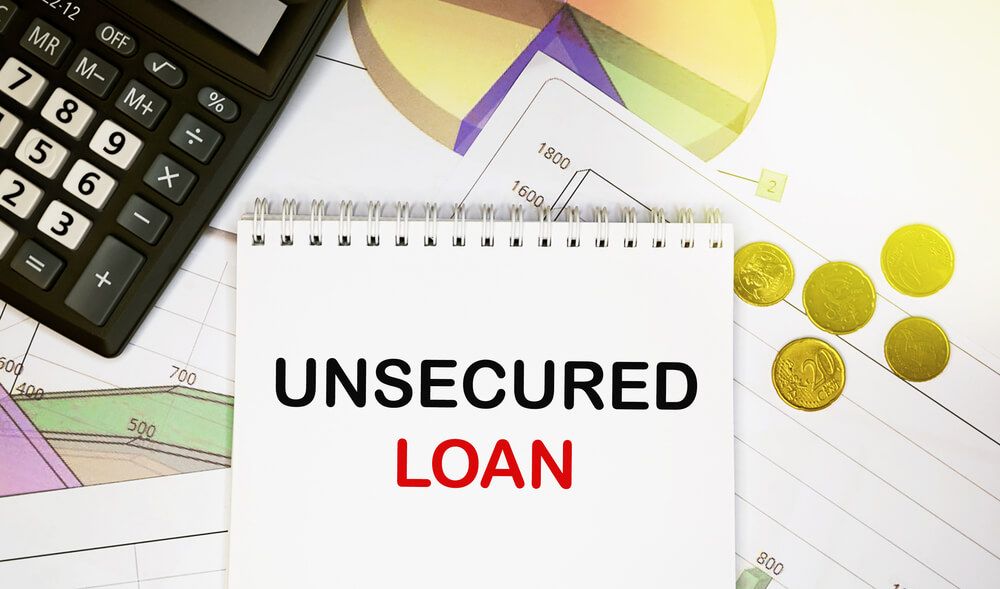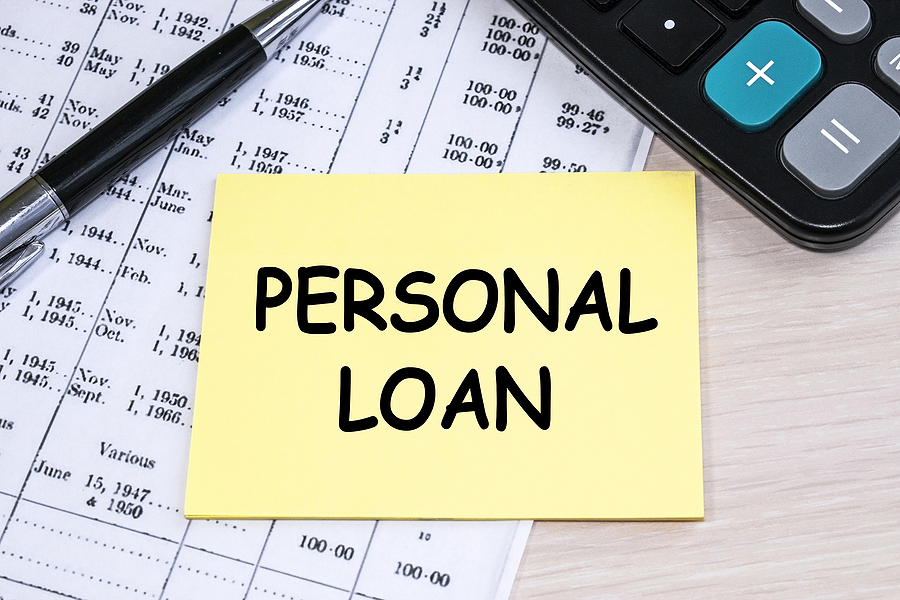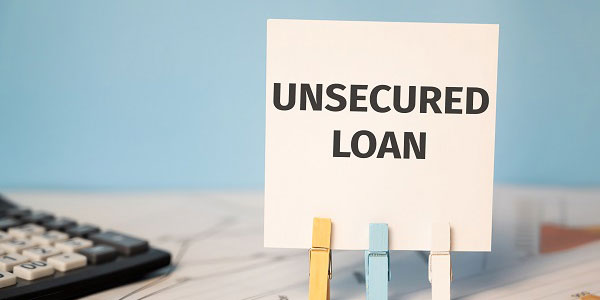Unsecured loans don't need you to put up any property or other valuables as security. Instead, the loan repayment is contingent only on the borrower's good credit and ability to repay the loan.
Personal loans are a frequent kind of credit in this category. In most cases, the amount you may borrow for an unsecured personal loan won't exceed $50,000. Repayment is spread over a defined number of years in the form of a monthly payment. Banks, credit unions, and internet lenders all provide these services.
Functioning of An Unsecured Loan

Unsecured loans, also known as signature loans or personal loans do not require any security to be authorized. It is common practice for a borrower's credit score to determine the conditions of the loan, from approval through actual funding.
Unsecured loans often require customers to have excellent credit. Unsecured loans are the opposite of secured loans, in which the borrower must put up collateral to obtain financing. The "security" of the loan for the lender is increased by the collateral offered. Mortgages and auto loans are common types of secured loans.
Lenders may accept cosigners from borrowers with poor credit ratings to grant them access to unsecured loans, despite the higher credit score requirements of unsecured loans compared to secured loans. In the event of a borrower's default, a cosigner assumes full responsibility for the debt. Default happens when a debtor stops making interest and principal payments on a loan or obligation.
Categories of Unsecured Loans
Personal loans, student loans, and the vast majority of credit cards fall under the umbrella of "unsecured loans," They can be either revolving or fixed-rate loans. Revolving loans are lines of credit that allow you to borrow money up to a certain level and then spend that money, pay it back, and borrow it again.
Both credit cards and personal lines of credit are types of revolving unsecured loans. In contrast, a term loan is repaid over a certain period by uniform monthly payments. Although secured loans are more commonly associated with term loans, unsecured term loans can exist.
The unsecured lending industry has expanded in recent years, helped along in part by fintech. For example, internet and mobile lending platforms that facilitate peer-to-peer transactions have increased in the last decade.
Payday Loans vs. Unsecured Loans

Payday lenders and merchant cash advance providers are two examples of alternative lenders. As opposed to loans for homes and cars, which are backed by physical assets, these loans have no such guarantee. These creditors, however, resort to alternative means of ensuring repayment.
For instance, lenders in the payday lending industry sometimes demand that consumers either sign over their bank account details or provide a postdated check. Lenders of online merchant cash advances sometimes stipulate that the borrower pay back the money via a payment processor, like PayPal, from the borrower's online sales.
Criteria For An Unsecured Loan
Personal loan criteria might differ from one lender to the next. Still, generally speaking, creditors will look at your credit history, salary, and debt-to-income ratio to determine if they should even provide you with a loan.
Credit History
Unsecured loan approval relies heavily on a borrower's credit score, use, and history. Lenders' potential loan offers to you will be influenced by the information you provide. If your credit score is poor, raising it before asking for a large unsecured loan can be prudent. LendingTree allows you to view your credit score at no cost.
Income
Lenders looking at your application for an unsecured loan seek assurances that you won't default on your payments. This is why you must be open about your financial situation. The rate you are entitled to may be based on your income level.
The Ratio of Debt To Annual Income
When considering you for an unsecured loan, your income and debt-to-income ratios may be considered. The debt-to-income ratio describes this situation. Lenders will view you more favorably if your DTI ratio is low. When deciding whether or not to grant you a loan, several financial institutions, like Happy Money, look at your DTI ratio.
Considerations
A lender's decision to grant or deny an unsecured loan is still subject to the lender's assessment of your creditworthiness; however, borrowers are protected against unfair lending practices by law. For instance, the Equal Credit Opportunity Act was passed in 1974, making it unlawful for lenders to consider a borrower's race, color, sex, religion, or any other criteria unrelated to their creditworthiness when deciding on whether or not to provide a loan.



